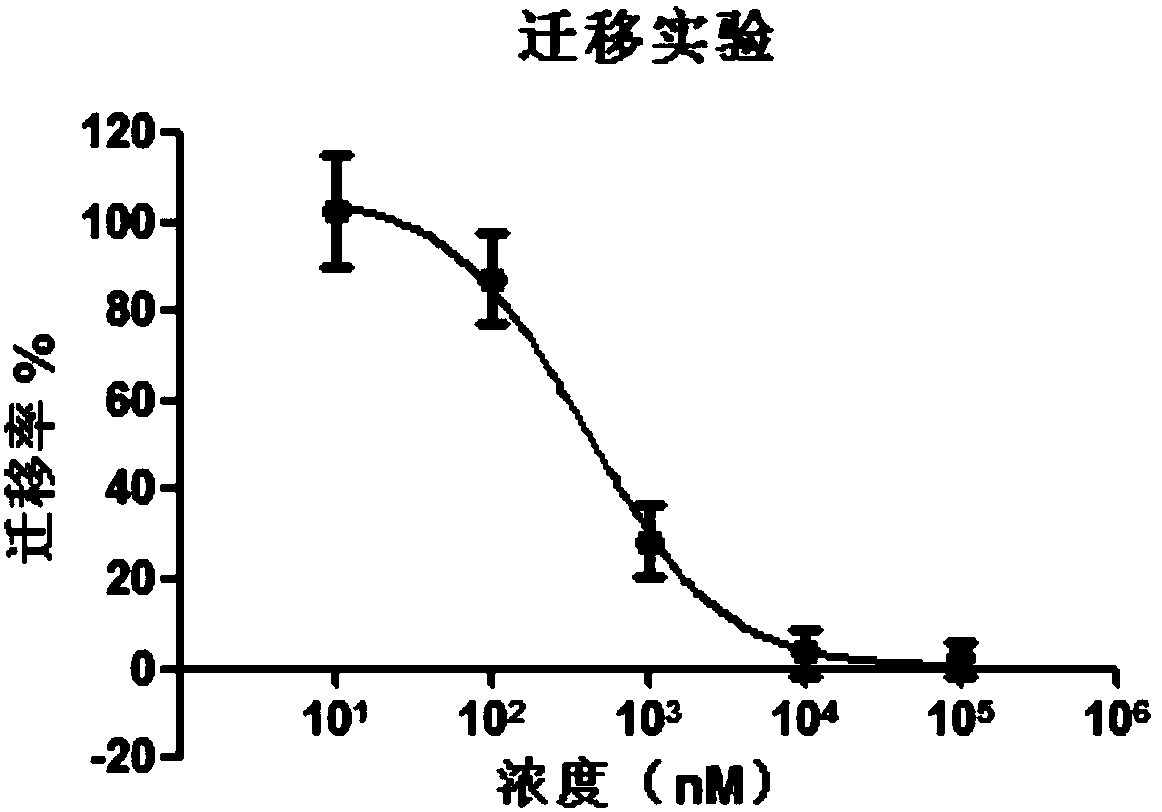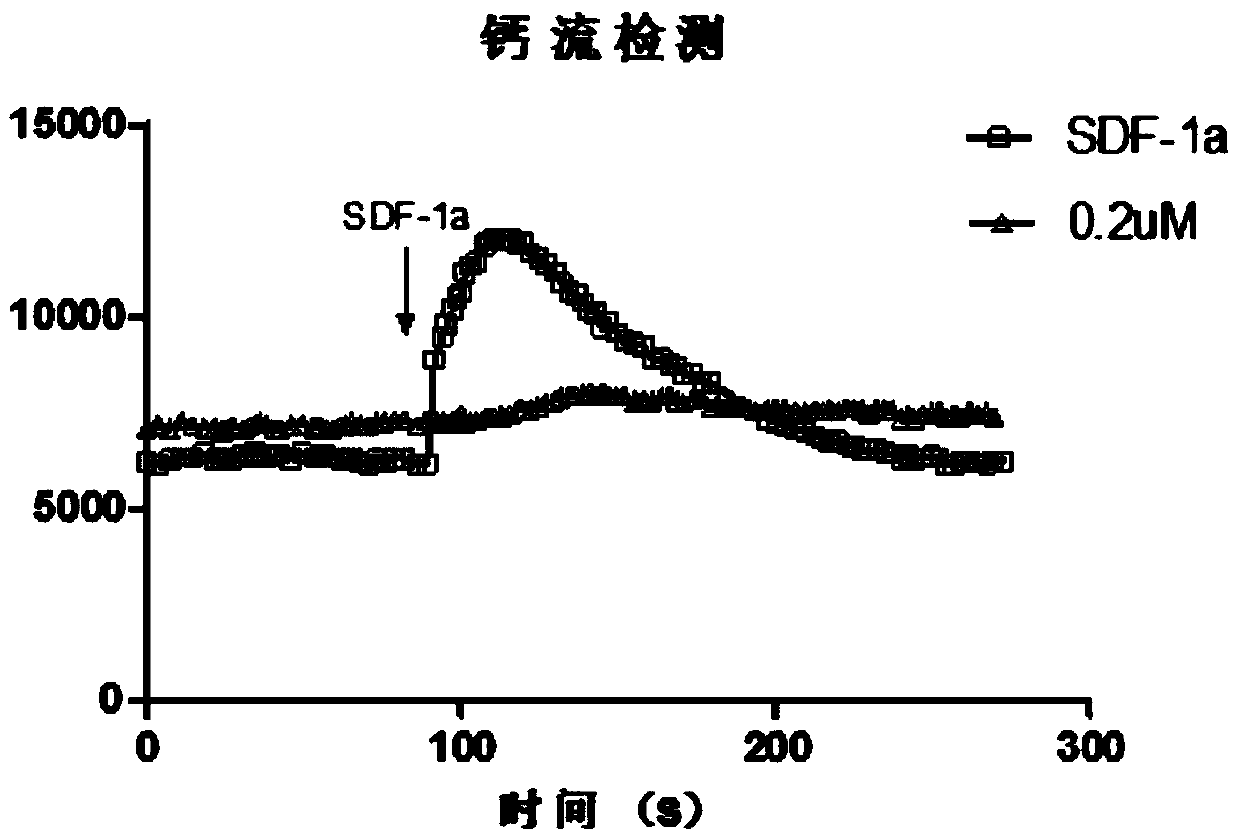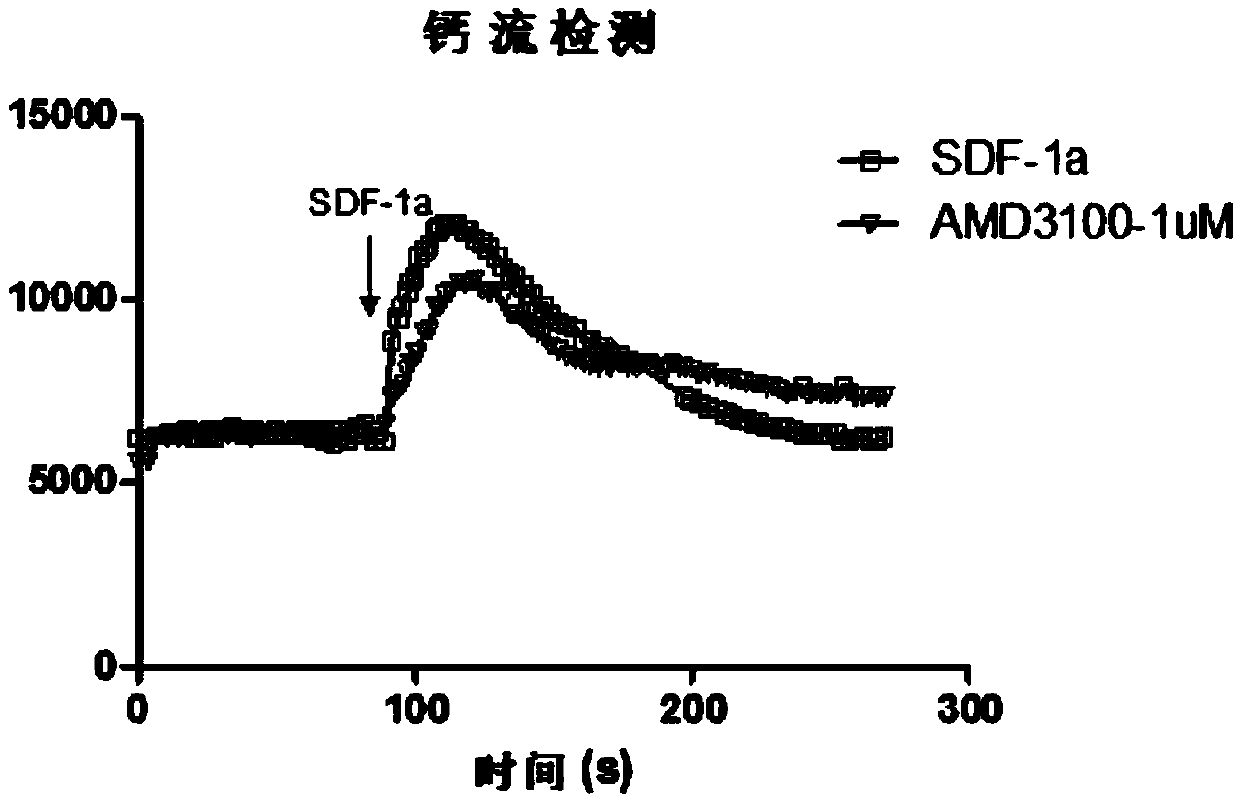Novel CXCR4 antagonist with amino acid skeleton as well as preparation and biomedical application of CXCR4 antagonist
An amino acid and group technology, applied in anti-inflammatory agents, antiviral agents, drug combinations, etc., to achieve the effect of novel structure and excellent antagonistic activity
- Summary
- Abstract
- Description
- Claims
- Application Information
AI Technical Summary
Problems solved by technology
Method used
Image
Examples
Embodiment 1
[0087] Example 1 Preparation of intermediate 1-3a (HFX50626-5): refer to the enumerated intermediate synthesis route (1)
[0088] 4-cyanobenzaldehyde (10g) was dissolved in methanol (150mL), and N-(3-aminopropyl)cyclohexylamine (12.4mL) and appropriate amount were added to the solution Molecular sieves, the reaction solution was heated to 65°C and stirred for 6 hours. After the reaction solution was cooled to room temperature, sodium borohydride (5.8 g) was added in batches and stirred at room temperature for 1-2 hours. The reaction was quenched with saturated ammonium chloride solution, and the reaction solution was concentrated to dryness. The residue was ultrasonically washed with methanol, filtered, and the filtrate was collected and evaporated to dryness to obtain intermediate 1-1a, which was directly used in the next reaction.
[0089] The crude intermediate 1-1a above was directly dissolved in tert-butanol (100mL) and sodium carbonate solution (2mol / L, 100mL), and Bo...
Embodiment 2
[0091] The preparation of embodiment 2 intermediate 1-3b
[0092] Referring to the enumerated intermediate synthesis route (1), the synthesis method and conditions are similar to the preparation of intermediate 1-3a.
Embodiment 3
[0093] Example 3 Preparation of intermediate 2-3a: refer to the enumerated unnatural amino acid synthesis route (2)
[0094] The amino acid raw material Fmoc-L-Lys(Boc)-OH (5 g) was weighed and suspended in dichloromethane (40 mL), and trifluoroacetic acid (20 mL) was added. After the reaction solution was stirred at room temperature for 1-2 hours, it was spin-dried, and the residue was precipitated with glacial ether. The resulting white precipitate was intermediate 2-1a, which was directly dissolved in methanol (50 mL), and acetone (20 mL) and trifluoroacetic acid (2 mL) were added. After stirring at room temperature for 2 hours, sodium triacetoxyborohydride (11.3 g) was added, and the stirring reaction was continued overnight. The final reaction solution was adjusted to PH 4-6 with hydrochloric acid solution (4mol / L), the concentration reached a certain volume, and extracted with ethyl acetate. The combined organic phases were dried with anhydrous sodium sulfate, filtered...
PUM
 Login to View More
Login to View More Abstract
Description
Claims
Application Information
 Login to View More
Login to View More - R&D
- Intellectual Property
- Life Sciences
- Materials
- Tech Scout
- Unparalleled Data Quality
- Higher Quality Content
- 60% Fewer Hallucinations
Browse by: Latest US Patents, China's latest patents, Technical Efficacy Thesaurus, Application Domain, Technology Topic, Popular Technical Reports.
© 2025 PatSnap. All rights reserved.Legal|Privacy policy|Modern Slavery Act Transparency Statement|Sitemap|About US| Contact US: help@patsnap.com



